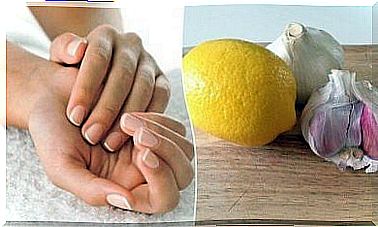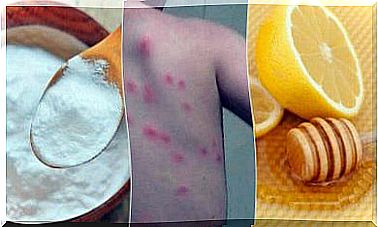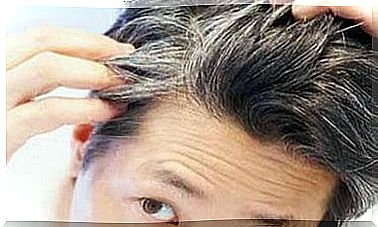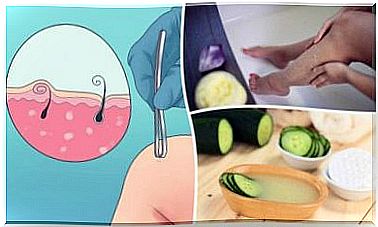Strange Symptoms Of Vitamin Deficiency

Just like a vehicle, your body constantly gives signals that everything is functioning properly or that you need to pay attention to parts that work less well due to, for example, a vitamin deficiency.
Listening to your body allows you to intervene in time if problems or ailments arise. This article lists some strange symptoms that crop up when there is a vitamin deficiency. In addition, you can recognize from each symptom which vitamin is missing.
If you are on a weight loss diet or if you are busy and you regularly grab a quick bite, it is possible that the body is not getting all the vitamins it needs on a daily basis. These are two of the most common causes of low vitamin levels in the body.
What happens in the body with a vitamin deficiency?
According to the doctors, an insufficient daily intake of vitamins does not immediately lead to the development of certain diseases. However, it does pave the way to becoming more susceptible to ailments and ailments. This makes it more difficult for your body to perform a number of functions.
Vitamins act as catalysts for all processes that take place in the body. If there are too few vitamins in the body, your body sometimes lets you know in a very strange way. It is important not to overlook the symptoms of a vitamin deficiency, so that you can react quickly.
The Five Most Unusual Signs of a Vitamin Deficiency
Cracks in the corners of the mouth
Do you notice cracks in the corners of your mouth when you look in the mirror? You don’t have to think about aging right away. Think more of a vitamin deficiency. This mainly concerns a too low level of vitamin B in your diet.
This mainly points to a lack of riboflavin (B2), niacin (B3) and B12, as well as iron and zinc. It is often seen in vegetarians who do not follow a balanced diet. They can supplement their diet with eating:
- lentils
- peanuts
- dried tomatoes
- Sesame seed
- Spinach
Non-vegetarians can find these supplements in products such as:
- salmon
- Eggs
- tuna
- mussels and oysters (or fish and seafood in general)
It is also a good idea to supplement this diet with sufficient doses of vitamin C. This promotes the absorption of iron. Therefore, eat plenty of broccoli, cabbage, cauliflower, red peppers and citrus fruits.
Red spots on the skin and a lot of hair loss
Red spots on the skin and hair loss are caused by a lack of zinc. Delayed wound healing, persistent dry skin, rashes and bruises can also be caused by a deficiency of this mineral.
Similar symptoms occur when your body does not get enough vitamin B7 (biotin) and the fat-soluble vitamins A, D, E and K. Therefore, eat enough:
- brewer’s yeast
- nuts
- pumpkin seeds
- whole grains
- pasteurized milk
- salmon
- avocado
- Cauliflower
- mushrooms
- raspberries
- bananas
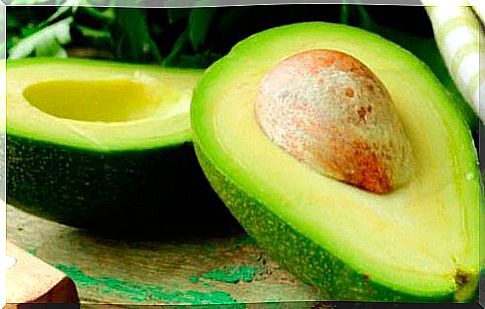
Red-white acne-like bumps on the cheeks, arms and thighs
You can notice these bumps if your diet does not contain enough essential fatty acids and vitamins A and D. The difference with acne is in the hardness of the bumps. They are hard and quite painful if you try to remove them.
You can combat these annoying bumps by eating less saturated fats and trans fats. Also increase the consumption of healthy fats. Eat more salmon, flaxseeds, chia seeds and nuts such as almonds and walnuts.
Vitamin A can be found in carrots, sweet potato and red bell pepper. These foods provide sufficient beta-carotene, so that your skin returns to optimal condition.
Tingling and numbness in hands and feet
Do you often suffer from tingling and numbness in the hands and feet? Then this may be due to a deficiency of vitamin B. Think mainly of B6, B11 (folic acid) and B12. These vitamins exert a direct influence on the peripheral nervous system and the nerves of the skin.
These annoying symptoms can also be associated with depression, anxiety, anemia and hormonal disturbances.
Supplement your weekly diet with products such as:
- asparagus
- Spinach
- beans
- Eggs
- oysters, squid and mussels
Cramps, shooting pains in the feet, calves and the back of the legs
An insufficient intake of potassium, calcium and magnesium can cause these annoying symptoms. They can each be responsible for this individually or all three together. Have you recently started an intensive training program? Then it is also possible that you lose too much of these minerals and B vitamins through excessive sweating.
Continue your workout. However, make sure that you eat enough foods every week such as:
- bananas
- hazelnuts, almonds
- pumpkin
- cherries
- apples
- Broccoli
- grapefruit
- Kale
- Spinach
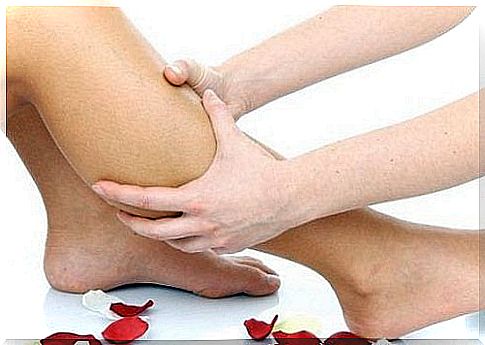
The consequences of any kind of vitamin deficiency
Below we describe per vitamin the ailments that can arise due to a vitamin deficiency in the body.
Vitamin A
A vitamin A level that is too low causes fatigue and night blindness, among other things. Also a poor condition of skin and teeth, bleeding gums and a greater susceptibility to diseases are among the symptoms.
Vitamin B
- Not enough vitamin B1 leads to insomnia, fatigue, weakness, poor muscle strength, depression, irritability, weight loss, gastrointestinal problems and cardiovascular problems.
- If the level of vitamin B2 is not high enough, you can suffer from red eyes. Also a sore mouth and tongue, greasy hair, skin infections and general fatigue are symptoms.
- Vitamin B3 deficiency causes headaches and lack of energy. Bad breath, nervousness, skin sores, poor appetite and stomach and intestinal problems can also occur.
- If there is mainly too little vitamin B5, you will mainly have cramps, fatigue or a burning sensation in the feet. Or you experience an irregular heartbeat, difficulty sleeping and a general feeling of illness.
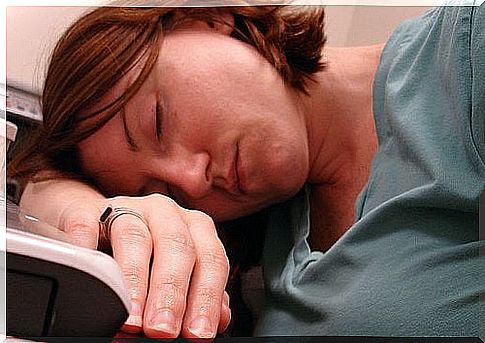
- Too little vitamin B6 causes insomnia, anemia, skin disorders, hair loss, cramps and water retention.
- Not enough vitamin B12 leads to the symptoms of fatigue, diarrhea, balance problems, depression, loss of appetite. Inflammation of the nerves and a sore tongue and mouth are also among the symptoms.
Vitamin C
If the body does not absorb enough vitamin C, wound healing will not proceed as smoothly. The healing process in fractures will also be slower to start.
Bleeding gums, painful and swollen joints and digestive problems develop. Bruising and anemia can also occur.
Vitamin D
We also need adequate vitamin D intake. It prevents brittle bones and slow fracture healing. However, it is also necessary to combat tooth decay, kidney stones, muscle weakness and delayed absorption of calcium.
Vitamin E
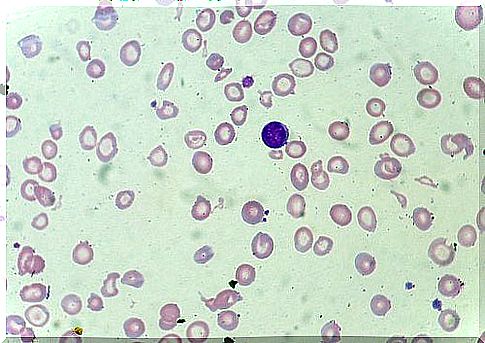
Too little vitamin E absorption can lead to anemia, heart problems, fertility problems, nervousness, and decreased reflexes. It can even lead to loss of balance or difficulty walking.





